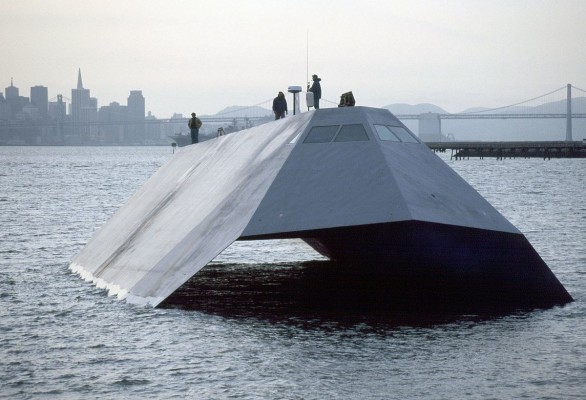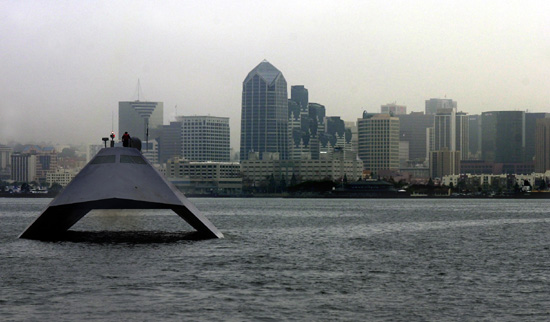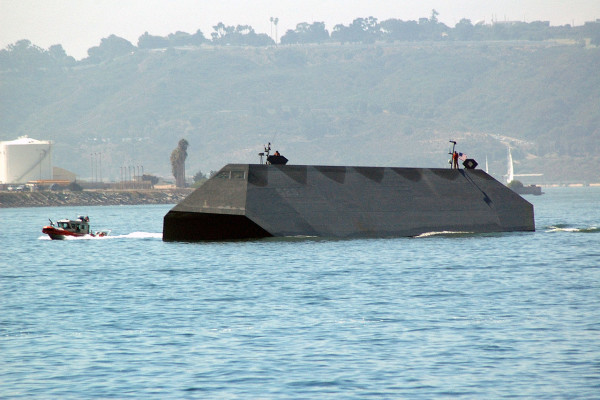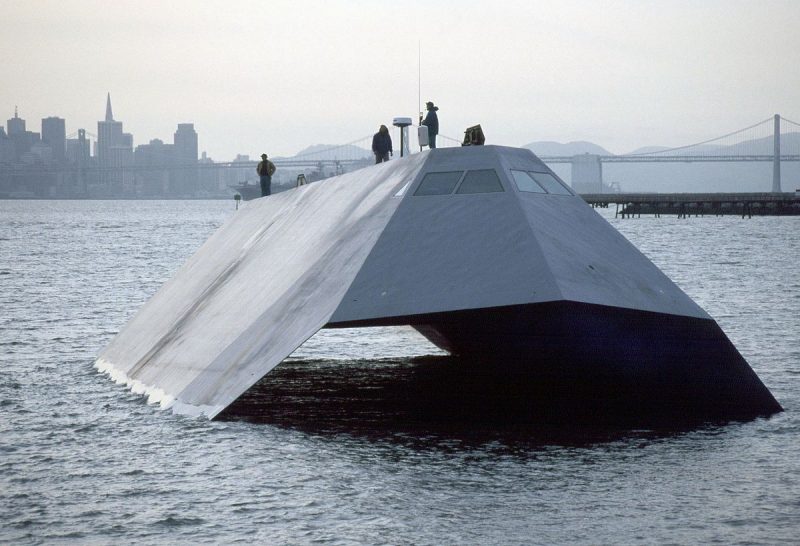Sea Shadow (IX-529) was an experimental stealth ship built by Lockheed for the United States Navy to determine how a low radar profile might be achieved and to test high stability hull configurations which have been used in oceanographic ships. Its purpose was to explore a variety of new technologies for surface ships, including ship control, structures, automation for reduced manning, seakeeping and signature control. However, the Sea Shadow never went into production and was little more than an (extremely cool looking) experiment.
Sea Shadow was built in 1984 to examine the application of stealth technology on naval vessels. She was used in secret until a public debut in 1993. In addition, the ship was designed to test the use of automation to enable the reduction of crew size. The ship was created by the Defense Advanced Research Projects Agency (DARPA), the U.S. Navy and Lockheed. Sea Shadow was developed at Lockheed’s Redwood City, California, facility, inside the Hughes Mining Barge (HMB-1), which functioned as a floating drydock during construction and testing.

Sea Shadow had a SWATH hull design. Below the water were submerged twin hulls, each with a propeller, aft stabilizer, and inboard hydrofoil. The portion of the ship above water was connected to the hulls via the two angled struts. The SWATH design helped the ship remain stable even in very rough water of up to sea state 6 (wave height of 18 feet (5.5 m) or “very rough” sea). The shape of the superstructure was sometimes compared to the casemate of the ironclad ram CSS Virginia of the American Civil War. Sea Shadow was built in Redwood City, California.

The T-AGOS 19-and-23-class oceanographic ships have inherited the stabilizer and canard method to help perform their stability-sensitive surveillance missions.
Sea Shadow had only 12 bunks aboard, one small microwave oven, a refrigerator and table. She was never intended to be mission capable and was never commissioned, although she is listed in the Naval Vessel Register. The ship was revealed to the public in 1993 and was housed at the San Diego Naval Station until September 2006, when she was relocated with the Hughes Mining Barge to the Suisun Bay Reserve Fleet in Benicia, California. Until 2006, Sea Shadow and the HMB-1 were maintained and operated by Lockheed Martin for the U. S. Navy. The vessels were available for donation to a maritime museum.

In 2006, the US Navy tried to sell Sea Shadow to the highest bidder; after the initial offering met with a lack of interest, it was listed for dismantling sale on gsaauctions.gov. The U.S. government mandated that the buyer not sail the ship and is required to scrap the ship. The ship was finally sold in 2012. Sea Shadow was totally dismantled in 2012 by Bay Ship.
Sea Shadow was the inspiration behind Elliot Carver’s stealth ship in the James Bond Film Tomorrow Never Dies, with the same appearance as Sea Shadow.
